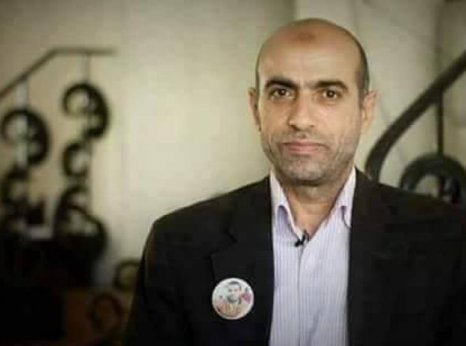Egypt: Unjustly Jailed Rights Lawyer Referred To Trial

Ibrahim Metwaly is a lawyer and co-founder of the Families of the Disappeared in Egypt group. He co-founded the group after his son, Amr, was forcibly disappeared on 8 July 2013. He searched for his son in police stations, prisons, hospitals and morgues with no success. Egyptian security forces denied knowledge of his son’s fate and whereabouts. Amr remains subjected to enforced disappearance, but the family stopped searching for him after the arrest of Ibrahim Metwaly out of fear of further reprisals.
On 12 September 2017, following his arrest on 10 September , the Supreme State Security Prosecution (SSSP) ordered the detention of Ibrahim Metwaly for 15 days pending investigations into charges of founding and leading an illegal group, the “Families of the Disappeared in Egypt Group,” “conspiring with foreign parties to harm Egyptian national security,” and “publishing false news”. While Egyptian law imposes a maximum two-year pretrial detention period, this is routinely bypassed in cases involving state critics and political opponents through a practice known as “rotation”. In Ibrahim Metwaly’s case, SSSP prosecutors opened two new cases in 2019 and 2020.
On 15 January 2025, the United Nation’s Special Rapporteur on the situation of human rights defenders issued a statement condemning the use anti-terrorism legislation to imprison human rights defenders. In her statement, she highlighted the prolonged arbitrary detention of Ibrahim Metwaly as well as the Egyptian authorities’ denial of adequate healthcare.
Ibrahim Metwaly is currently held in Badr 3 Prison, located 70 kilometres to the northeast of Cairo, where, according to Amnesty International’s research, prisoners are subjected to horrific and punitive conditions. Former detainees and family members have spoken of heavily restricted access to basic necessities such as sufficient food, clothing and books. Authorities often deny regular contact with families and lawyers and detention renewal hearings are routinely held online. Such hearings take place under coercive circumstances in the presence of prison guards and detainees are prevented from communicating with their lawyers. Further, they expose detainees to risks of reprisals from guards for complaining about torture or other ill-treatment and impede the ability of judges to spot visible bruises or other injuries.
Ibrahim Metwaly’s family is allowed to visit him every 45 days or two months. The visitors sit in a booth with glass partition separating them from their loved ones, which makes communication difficult due to the low volume of the phone. The family is also allowed to deliver food, clothing and medical items every 30 days, but report that on some occasions officials ban specific items at their whim.
Amnesty International has documented a pattern of enforced disappearances which have plagued Egypt for the past decade. The National Security Agency (NSA) and other security forces routinely hold those accused of involvement in terrorism or protests incommunicado and deny any information about their fate and whereabouts to their relatives and lawyers, for periods ranging from a few days to 23 months. Egypt remains a non-signatory of the International Convention for the Protection of All Persons from Enforced Disappearance.